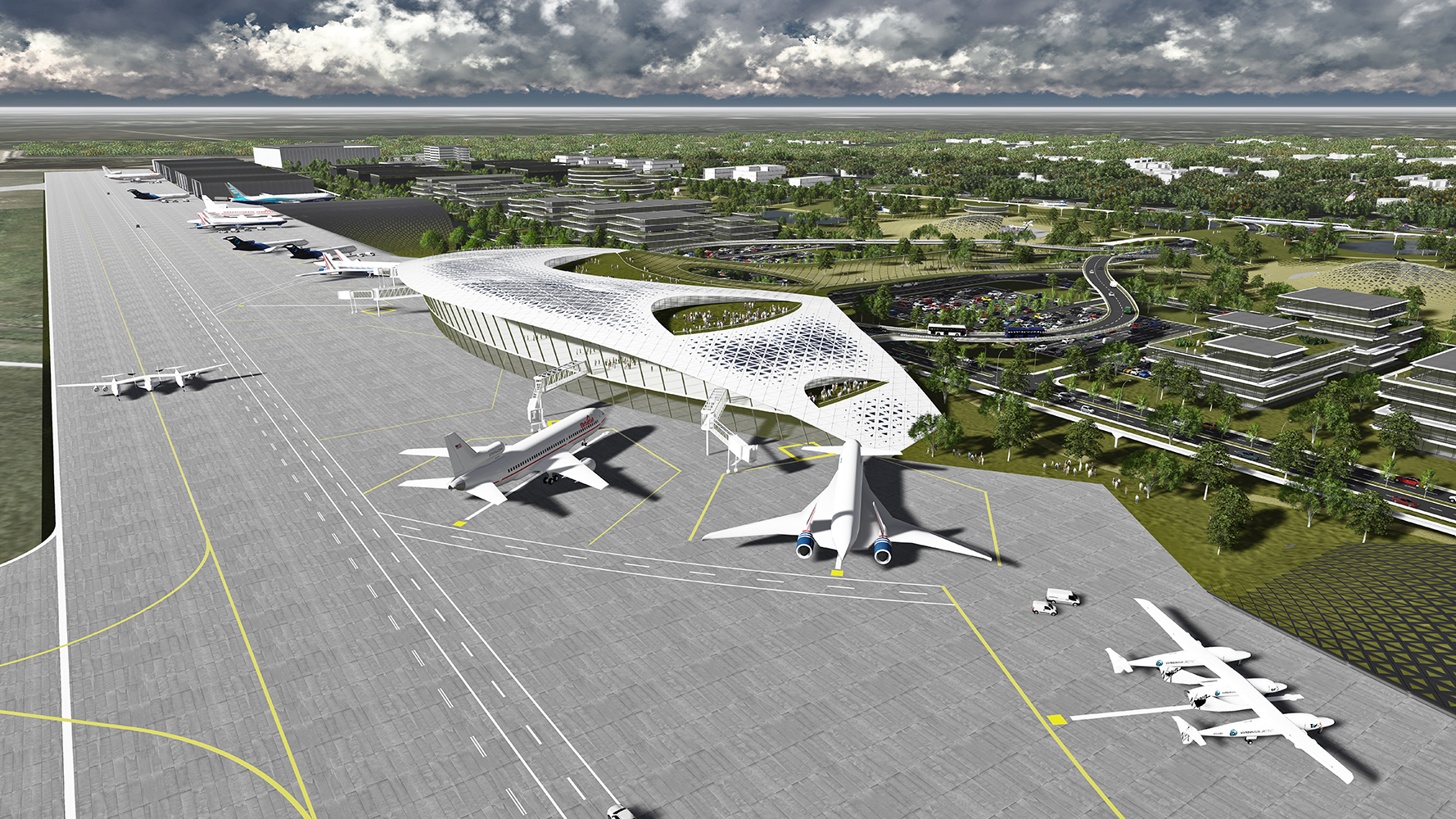
New spaceport is one small step for Houston
Not long ago, being able to buy a ticket to space may have seemed like something out of a science fiction novel, but commercial space travel is no longer a dream of the distant future. With the likes of Richard Branson’s Virgin Galactic and Elon Musk’s SpaceX, suborbital flight trips are within reach and people are closer than ever to vacationing on Mars. In fact, a launch site will be right down the street.
In June 2015, the Federal Aviation Administration (FAA) approved Ellington Airport to become the 10th licensed commercial spaceport in the United States.
“In 2014, the global space industry accounted for $330 billion; 76 percent of that came from the commercial side,” said Jimmy Spence, aerospace marketing manager for the Bay Area Economic Partnership. “We want Houston to be positioned to take advantage of this growing industry. The great thing about this being in development is that it’s relatively unmolded at this point. The possibilities are really endless.”
With NASA ending the Space Shuttle program and stopping manned space flights, interest has been piqued by the potential for space tourism. A ticket for the Virgin Galactic SpaceShip Two currently costs $250,000 per seat. Roughly 700 future astronauts have already made their deposits. With no official launch date, commercial operations are expected to begin within the next few years.
SpaceX’s Dragon, the spacecraft designed to deliver both cargo and people to orbiting destinations, successfully delivered cargo to the International Space Station and safely returned cargo to Earth in 2012.
What is a spaceport?
Ellington Airport’s spaceport will be a base for launching Reusable Launch Vehicles (RLVs), or spacecraft; essentially a space airport. Rockets, human spaceflights and satellites are just a few types of RLVs Ellington’s spaceport could be launching.
With the FAA’s approval, the Houston Airport System (HAS) can move forward with building infrastructures and facilities to house and launch RLVs.
What does a spaceport mean for Houston?
A successful spaceport could provide an economic growth for Houston; possibly offsetting the slump left by falling oil prices and Petro chemical company layoffs. Ellington’s spaceport is the first near a major metropolitan area, making it one of the more desirable launch sites.
“The Houston Spaceport is the number ten spaceport in the country that has been licensed,” said Dan Seal, executive director of special initiatives for the Bay Area Economic Partnership. “All of the previous spaceports have been located in very isolated, remote areas.”
A spaceport could be a major advantage for Houston’s existing industries.
“Being in a major metropolitan area like Houston allows the industries – oil and gas, medical – access to space applications,” Spence said.
It would also mean more jobs.
“The Spaceport will employ its own workforce, but there will also be workforce additions to supporting businesses such as private contractors working on space transportation projects, or local manufacturers that fabricate necessary materials for space transportation,” said Jason Murasko, economics professor at UHCL. “These new businesses will be potential employers for our students in all sorts of roles, from direct STEM (science, technology, engineering and mathematics) employment to supporting employees in finance and administration. If successful, the Spaceport has the potential to add a new diversity to the local economy.”
What does a spaceport mean for NASA Johnson Space Center?
Ellington Airport’s spaceport will work collaboratively with NASA Johnson Space Center (NJSC) to expand Houston’s position in the aerospace community.
“We are working very closely with NASA’s JSC to further develop a stronger relationship between both organizations to ensure Houston retains its aerospace industry and our position as ‘Space City’ in the future,” said Arturo Machuca, general manager at Ellington Airport. “We are working together to promote Houston’s expansion in the aerospace manufacturing and assembly business. Just last November, we took a solid step forward with the recent signing of a Space Act Agreement focused for now in Safety Management Systems, which can now easily be expanded into most areas of expertise that NASA possesses. This is a key development as NASA’s resources and wealth of experiences become available for existing Houston Spaceport commercial partners.”
What does a spaceport mean for UHCL students?
With a spaceport and a rapidly growing industry, UHCL students are looking at more local opportunities.
“The students that are especially focused in the STEM fields are going to have real opportunity attached to the spaceport,” Seal said. “It’s broad in its concept right now, so we will be narrowing down exactly what kind of uses will come here but, whatever they are, you can bet it’s going to be involving high technology research and development, design of future space systems, the study of new materials, all of those things are going to require students in the STEM areas. They will need marketing people, financial people, accounting, etc.”
For more information, visit www.fly2houstonspaceport.com
